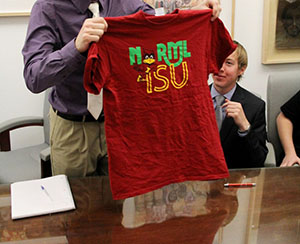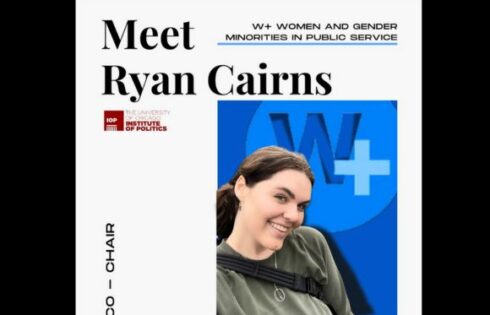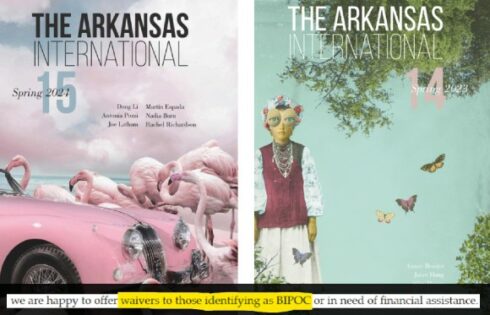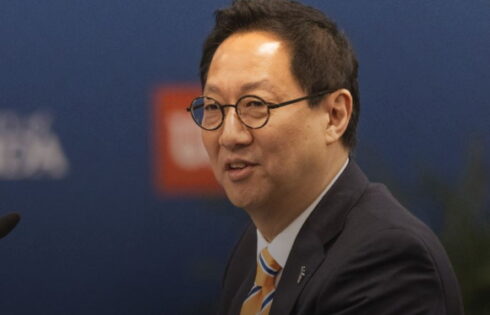
Officials were ‘on notice’ they were flouting decades of precedent
It was a new day, but same result for Iowa State University.
After asking a federal appeals court to reconsider its February ruling that the public university violated the First Amendment rights of pro-marijuana activists on campus, ISU got an even worse ruling earlier this month.
The 8th U.S. Circuit Court of Appeals doubled down on its original decision in Gerlich v. Leath that ISU singled out the campus chapter of the National Organization for the Reform of Marijuana Laws (NORML) by not letting it use the university logo on its T-shirts.
In a finding that could endanger college officials across the 8th Circuit’s jurisdiction of Arkansas, Iowa, Minnesota, Missouri, Nebraska, and North and South Dakota, the appeals court refused to shield individual administrators from liability.
The case had united a broad coalition of national college groups, from pro-life activists to press freedom defenders and libertarians, in favor of NORML ISU leaders Paul Gerlich and Erin Furleigh.
“We wanted the court to be aware that discrimination against speakers on campus is a common occurrence and a real problem,” Casey Mattox, director of the Alliance Defending Freedom’s Center for Academic Freedom, told The College Fix in a phone interview.
The alliance, which represented several of the “friend-of-the-court” filers, conveyed to the judges that “viewpoint discrimination on campus, particularly against conservative speakers on university campuses, has a long track record and needs to be addressed,” said Mattox.
‘No reasonable university official’ can think this is ‘government speech’
In an opinion for the three-judge panel, Judge Diane Murphy wrote that ISU had discriminated against Gerlich and Furleigh because of their viewpoints and political pushback from Iowa politicians.
In addition, the court found ISU did not engage in government speech by letting campus groups use its trademarks: Rather, it provided a “limited public forum” that “facilitated the speech of private persons.”
NORML ISU also did not violate the terms of the limited public forum, “because the organization advocates for reform to marijuana laws, not the illegal use of marijuana,” according to the panel.
MORE: Potheads, press and pro-lifers unite for student speech
 The judges split, however, on the issue of “qualified immunity,” which excludes government officials acting in their official capacity from civil lawsuits unless they violate a “clearly established” constitutional or statutory right.
The judges split, however, on the issue of “qualified immunity,” which excludes government officials acting in their official capacity from civil lawsuits unless they violate a “clearly established” constitutional or statutory right.
Murphy and Judge Jane Kelly said ISU administrators, including then-President Steven Leath, should have been aware of legal precedents going back decades that ban universities from using “viewpoint discrimination” in a limited public forum.
It was “clearly established” when administrators singled out NORML ISU in rejecting a series of T-shirt designs the chapter had submitted, according to the judges.
Judge James Loken wrote a dissent specifically on the qualified-immunity issue, saying administrators “were neither plainly incompetent nor knowing lawbreakers” when they rejected a string of proposed T-shirt designs.
“The court cites no case in which school officials administering a trademark licensing program violated, or were even accused of violating, the First Amendment by denying proposed uses of the school’s registered trademark,” Loken wrote.
Its trademark licensing policy already prohibited “products causing potential health risks” such as tobacco: “Based on these undisputed program policies, it was far from clear prior to this litigation that ISU’s trademark licensing program was not a form of government speech.”
Loken blamed Gerlich, then the president of NORML ISU, for publicly suggesting the university gave its stamp of approval to pro-marijuana advocacy. Gerlich “bragged” in the media that the original approval of the club’s T-shirt “reflected ‘nothing but support from the university,’ support for the group that was ‘blowing our minds.’”
MORE: Court tells ISU to stop suppressing pro-weed activists
Judge Kelly challenged Loken’s dissent in a concurrence, saying qualified immunity “does not require a case directly on point” nor a previous ruling that the action was explicitly “unlawful”:
At the time of the challenged actions in fall 2012, the defendants were on notice of several cases that clearly established that their conduct violated plaintiffs’ First Amendment rights. In at least four cases, the Supreme Court has held that a university creates a limited public forum when it distributes benefits to recognized student groups. …
Here, it is undisputed that ISU granted recognized status to NORML ISU as a student organization. … ISU concluded that NORML ISU’s purpose was “consistent with the broad educational mission of the university,” but it made clear that it “does not support or endorse the purposes” of any registered organizations, including NORML ISU.
Kelly said the university only claimed its trademarks were government speech because of the “purported confusion” around the NORML shirt: “No reasonable university official could have relied on this single example of confusion, in a field of at least 2,195 student organization uses of ISU marks, to convert a historic forum for student speech into government speech.”
Iowa State rebuked more severely by 8th Circuit in second ruling on First Amendment and marijuana by The College Fix on Scribd
Free speech has impacts on other people, and ISU must recognize that
“We are very … happy the 8th U.S. Circuit Court reaffirmed its earlier finding that Iowa State had violated our client’s First Amendment rights,” Robert Corn-Revere, head counsel for the plaintiffs and prominent First Amendment lawyer, told The College Fix in a phone interview.
“Simply using the label ‘trademark’ doesn’t make government action immune from the First Amendment. College administrators need to be aware that if they violate student’s First Amendment rights there can be consequences,” he said.
NORML’s national office referred The Fix to Dan Viets, the head of its Missouri affiliate, for comment. “Iowa State was clearly discriminating against the NORML chapter because they did not agree with their message,” Viets said in a phone interview, calling the incident an unusual occurrence for a NORML campus chapter.
ISU hasn’t decided what its next steps will be, lead counsel Mike Norton told The Fix in a phone interview.
He said the 8th Circuit’s new ruling won’t have much effect on how the university handles First Amendment issues: “In the near term I don’t think the ruling will have an impact … except those directly related to trademark use.”
While Iowa State is committed to the protections of the First Amendment, it can’t ignore the impact that speech has on other people, Norton said.
MORE: Judge says students can sue president for t-shirt censorship
The case was reopened in March after the appeals court granted ISU’s petition, according to the Foundation for Individual Rights in Education, which sponsored the case through its three-year-old Stand Up for Speech litigation project.
The NORML ISU case was part of the first group of cases to be litigated under the project, and it’s the only one that has made it to an appeals court.
Iowa State has consistently lost in court. It lost its motion to dismiss more than two years ago, and a year later the district court issued a permanent injunction preventing the university from using the trademark policy to prohibit NORML ISU from making shirts containing marijuana symbols. It also lost on qualified immunity then.
Groups that joined the Alliance Defending Freedom brief in support of NORML ISU were Students for Life of America, Young America’s Foundation, Young Americans for Liberty, Ratio Christi and Christian Legal Society.
MORE: How license plates are like campus speech
Like The College Fix on Facebook / Follow us on Twitter
IMAGE: Africa Studio/Shutterstock, NORML ISU






Please join the conversation about our stories on Facebook, Twitter, Instagram, Reddit, MeWe, Rumble, Gab, Minds and Gettr.